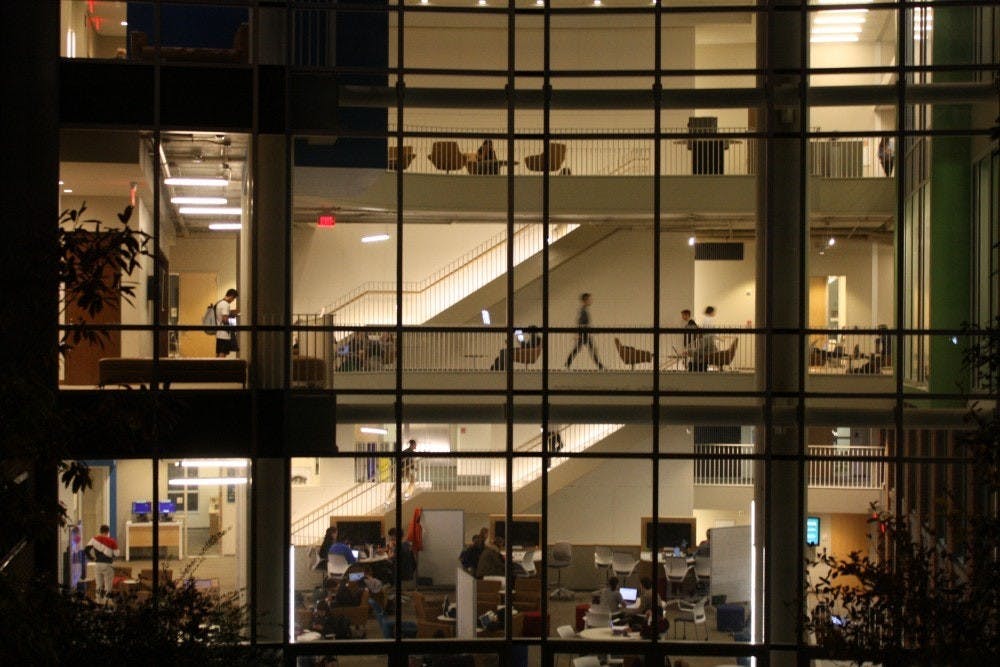The Counseling Center is offering a variety of new online support groups for students during the fall semester. There are 17 new resources, including the Critical Coping Group, Pandemic Support/Discussion Space, Parenting Support Group, Racial Trauma Group and Virtual Support Group for Loved Ones of Individuals with Eating and Body Image Issues.
A full listing and description of these groups can be found on the University Wellness Website. Students can join by leaving a voicemail for the Counseling Center at (410) 516-8278.
All groups are offered via Zoom and open to students located anywhere in the U.S. Similarly, web-based resources are available to all students, both domestic and international, as long as their country permits access. Mental health practitioners in the Counseling Center are unable to provide treatment internationally but are available for consultation with students.
These resources are in addition to the University’s partnership with the Calm app, SilverCloud, Thriving Campus and telehealth line TimelyMD.
Junior Kai’jeh Johnson, president of the Black Student Union (BSU) at the Peabody Institute, has attended all the Racial Trauma Group meetings so far.
“They have been great because we get to interact with students at Homewood who we normally would not be able to meet. It’s always great for an institution to have a space for Black students to speak to one another,“ Johnson said. “We also got to speak with mental health professionals, and our voices were heard by administrators because they were at the meeting.”
Junior Rahwa Yehdego, vice president of BSU at Homewood Campus, is also appreciative of the University’s efforts to create resources for Black mental health. She highlighted that Tiffany Llewellyn, the Counseling Center’s social worker who leads the Racial Trauma Group, even reached out to BSU leaders for their input.
“It’s encouraging to have a counselor in charge of Black mental health on campus, but we have been asking for that for years. It’s sad that it took everything that happened during quarantine for this to be addressed and met with urgency,“ she said. “I think that they could be doing more.”
In an email to The News-Letter, Vice Provost for Student Health and Well-Being Kevin Shollenberger noted that the Health and Well-Being staff are aware of the challenges presented by remote learning and are open to hearing about the needs of the student body.
“We’re always exploring more programmatic and service-delivery modalities to maximize student time, while also acknowledging the challenges of ‘Zoom Fatigue,’” he wrote. “Offices are offering easy ways to connect with staff, virtual office hours, and building individual and group relationships with students to get authentic feedback.”
Junior Kylie Sharron, co-director of A Place To Talk, explained that the physical distance imposed by remote learning exacerbates the disconnection between students and the administration.
In an email to The News-Letter, she explained that it is the University’s responsibility to gauge its students’ opinions on University initiatives.
“While administration and the Counseling Center are open to, even happy to, receive feedback, the avenues of this feedback are not explicit enough,” she wrote. “Ameliorating the polarity of this disconnect can begin with clarifying all feedback and input avenues.”
Sharron added that students experiencing heightened anxiety from their current environment may feel too overwhelmed to navigate through University resources on their own.
Junior Dmytro Nebesh, vice president of Peabody’s mental health awareness club Peabuddies, knows a lot of people who have attended and benefited from Pandemic Support/Discussion Space. However, he agreed that a barrage of emails is not the best way to promote these resources nor does it connect students at Peabody to the rest of the University.
“We’re grateful for the Peabody faculty. I can’t really speak for Hopkins — they’ve kind of just given us a free Minecraft account and told us, ‘Well, you can just destress with this,’” Nebesh said. “It feels like they just throw a bunch of resources at us and then disappear. If there is news about online student involvement and community events, they’re definitely not reaching me or my friends.”
Through BSU, Yehdego hopes to fill in the gaps where the University has fallen short to foster a strong sense of community for Black students.
“It’s really just disheartening — we heard the Breonna Taylor verdict just [a few] days ago, and I think there are a lot of things that make it hard to go about your studies in a normal fashion,” Yehdego said. “So, the University could really do more to support [the Black community] in that virtual setting.”





